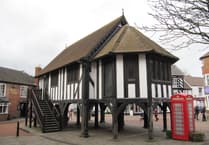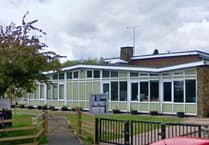More foster carers are desperately needed in Herefordshire, to provide stable, secure and loving homes for children, both from the local area and for unaccompanied asylum minors who will be arriving in Herefordshire in the near future.
There is currently a national shortage across the whole of the UK, but as Herefordshire is a rural, small county, there is a smaller pool of people to step forward and offer their help.
Carol Moreton, Herefordshire Council’s Fostering Team Manager, told the Ross Gazette that when finding a foster placement for children, the local authority always strives to keep Herefordshire children within their locality, near to their school and their friendship groups, in an effort to ease their transition.
She said that if there are no spaces for these local children available within Herefordshire, they may have to travel a long way, which can cause them even more disruption, which can make a difficult situation for these children even harder.
In addition to re-homing local children, the local authority are also preparing for the arrival of young unaccompanied asylum seekers. In total, Herefordshire will be providing 25 places for these children.
Pete, a local foster carer also met with the Gazette, to share his experiences. Pete has been a foster parent for eight years. He told the Gazette that foster carers aim to bring some stability in what can be a chaotic time for the children.
Pete said when he first applied to be a foster carer, the process took approximately six months. The first step for someone considering taking on the responsibility would be to contact Sally Vaughan, the recruitment officer for Herefordshire Council’s fostering team. Sally would be able to provide further information, and talk about what the role entails.
If a potential foster carer wants to proceed to the next step, they complete an application form with details about their personal life, their family and friends. A police check would also need to be carried out.
The applicant has to give details of their house and referee details, and they can attend a ‘Skills to Foster’ preparation course to learn more about fostering before an assessment report is made
Pete told the Gazette that many people may have misconceptions about what a suitable foster carer entails. “A lot of people think carers should have some sort of ‘super family’, I’ve had people tell me they wouldn’t be allowed to be foster carers because they’re divorced, but you can be single, married, or divorced.”
Carol added that so long as a person is over the age of 21, they have a spare bedroom, and, if they are in a relationship, they have been so for more than two years, they would be considered.
For those who do become foster carers, Herefordshire Council provide a training programme, which includes basic first aid, how to manage behaviour, the effects domestic abuse can have, and how to best help the foster children. The Council also provides on-going support. Carol explained that each foster carer has an allocated social worker, and whatever else is needed, is put in place.
“No two children are the same,” Pete said. “That’s true for all kids, but no more so than foster kids.” He added that different foster carers provide different roles to suit these needs. Some will provide more permanent, long-term homes, while others may do a few months or weeks, and some will do a day at a time, as respite care. The Council also need both foster homes and supported lodgings accommodation for older, more independent teens.
“There are far more positives than negatives when it comes to foster care,” said Pete. “When you see the child thrive and going forward, it’s great. Sometime you see it makes such a difference, just giving them regular meals, routines, time and attention. The children blossom and shine.”
If you are interested in becoming a foster carer, please contact Sally Vaughan for more information on 01432 383240.




